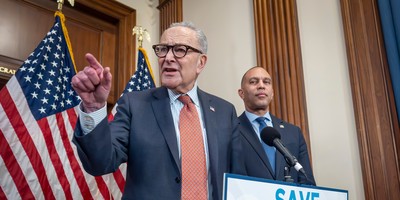Chelsen Vicari uncovers liberalism in the church in her new book, Distortion: How the New Christian Left is Twisting the Gospel and Damaging the Faith.
Distortion is Miss Vicari’s first book.
Vicari, a graduate of Regent University, formerly employed by Concerned Women for America and now working for the Institute on Religion and Democracy, not only exposes church liberalism, which is little more than recycled, discredited theology, but names the perpetrators of such liberalism; church leaders that caused her to briefly turn her back on truth. Finally, Vicari issues a call to action, for her fellow evangelicals, to reverse this alarming trend.
Theological liberalism and reshaping the Gospel has been around for a long time. 19th Century theological liberalism was led by Adolf von Harnick and others in Europe and America. These liberals are held in high esteem by some yet their influence has caused the decline of the very Protestant denominations that they infused liberalism into.
Church numbers dramatically decline when theological liberalism takes hold, as been seen in Episcopal and other denominations in the last 100 years. Even Rob Bell’s Mars Hill Church began greatly losing numbers as his theological views became more apparent in the past few years. This generation of theological liberals, according to Vicari, is working extra hard to mask themselves in deception; using code words such as tolerance, equality, and compassion in trying to infiltrate the modern evangelical church. She points out that the conservative church is the most compassionate church as its beliefs clearly, without confusion, reflect the scriptures that offer eternal salvation with the Lord.
Recommended
Vicari confronts language used in the Christian subculture such as “speaking the truth in love” and how that phrase has been distorted by theological liberals. She writes “…the biggest lesson I’ve learned in my study of this phrase is that to stifle the truth in the name of love is actually quite selfish….To hide from truth to be perceived as nice does no one any favors.” Quoting the Book of Acts 2:37, the words of truth “cut to the heart.” In doing so, Vicari reasserts that eternal truth divides even families but it must reign supreme for false truth is not compassionate but. It is the truth that sets people free.
Other language confronted in Distortion is the idea that the church needs to be relevant to the culture. Distortion asserts this is ultimately a self defeating idea. Vicari quotes A.W. Tozer who wrote, “We (the church) are to bless the world, but never are we told to compromise with it.”
Distortion is part history, part handbook, and part personal journey as Vicari is open with how easy it was for her to fall into theological liberalism even in the evangelical church. With candid remarks, she freely admits that the desires to be cool, relevant, tolerant, and well liked are problems that face not only her but many other young evangelicals.
Vicari goes further than most critics of leftism by actually calling out perpetrators of theological liberalism such as Rob Bell and Brian McLaren. Further, she takes others such as Pastor Andy Stanley to task for ignorning major questions in regards to the gay agenda and the rights of Christians. Bell and McLaren led the emergent church early in the 21st century. The emergent church, though largely discredited (both Bell and McLaren left their pastorates and have embraced the homosexual movement), is perhaps best described like American third political parties; their parties die out but some of their crazy ideas find their way into the mainstream.
The theological liberalism, masked as relevancy, has found its way into evangelical churches with a lack of sermons on sin and hell, lack of support for Israel, refusal to confront homosexuality, and lack of defending religious liberty in the face of increasing government and politically correct power. Further, Distortion shows not only what the church is lacking but that what the church is complicit in such as, “worship music to our Bible study topics have a very me-focused agenda” in the words of Vicari.
Vicari says that “Evangelicals cannot stay silent as they see our churches decline in substance, and consequently membership as did happen with the Mainline denominations.” As leaders such as Jerry Falwell, D. James Kennedy, Billy Graham and others have either died or greatly aged, Vicari points to the need for another generation of church leaders to stand in the gap as the previous generation did.
With Distortion, Vicari clearly shows that she is one of the young people who will not compromise on the truth. She points to herself as one of those people who must stand in the gap, after she came home from her own exposure to church liberalism. Vicari believes the need for Christians to stand for the truth is not only important, but a non negotiable tenant of the faith. Her personal journey, chronicled through this book, is not only warning but a message of great hope and promise. Vicari’s hope is that every other Christian will make the same stand for truth.
“We can no longer rest carefree in our evangelical identity—because it is changing” Vicari writes. Distortion forces the questions of what does one really believe in Christianity and are they willing to accept and teach, as Jesus said, “everything” he has commanded. The book is a compelling and necessary read.

























Join the conversation as a VIP Member